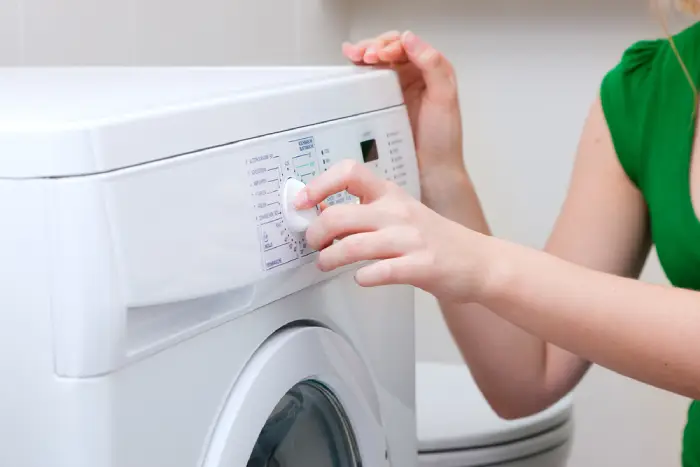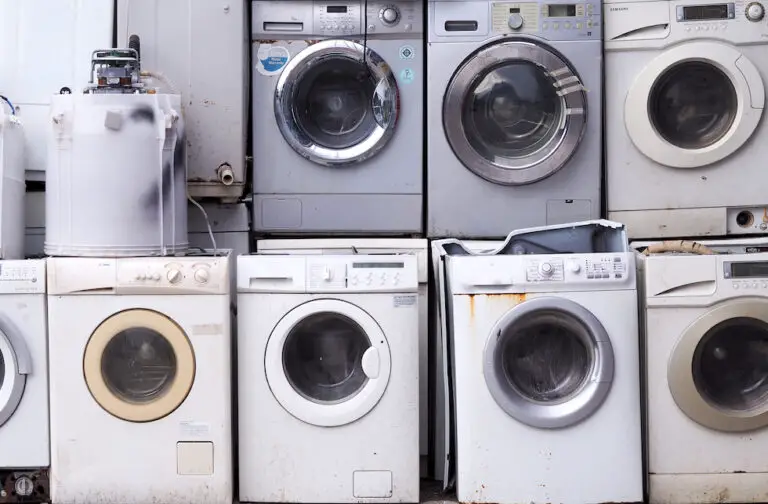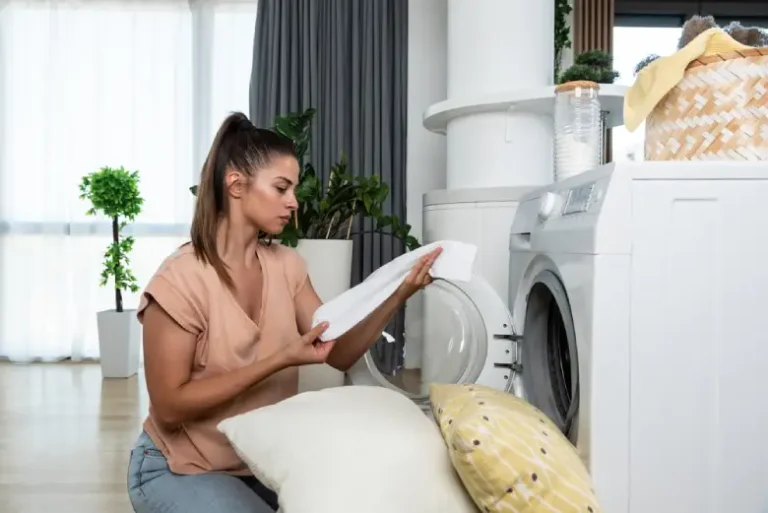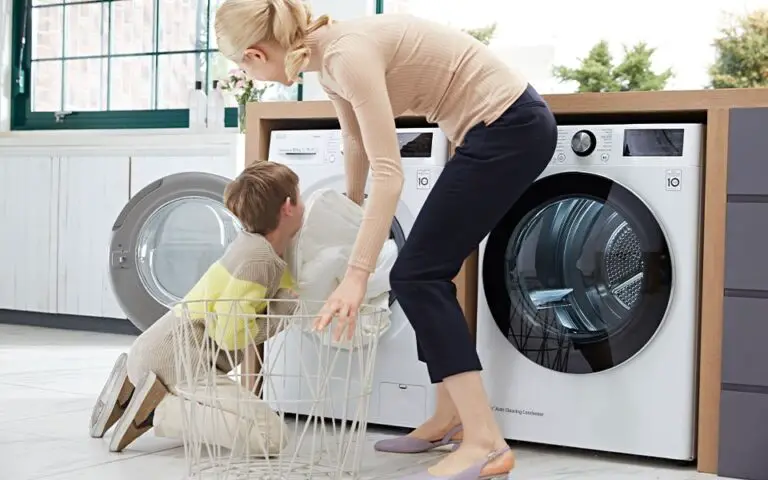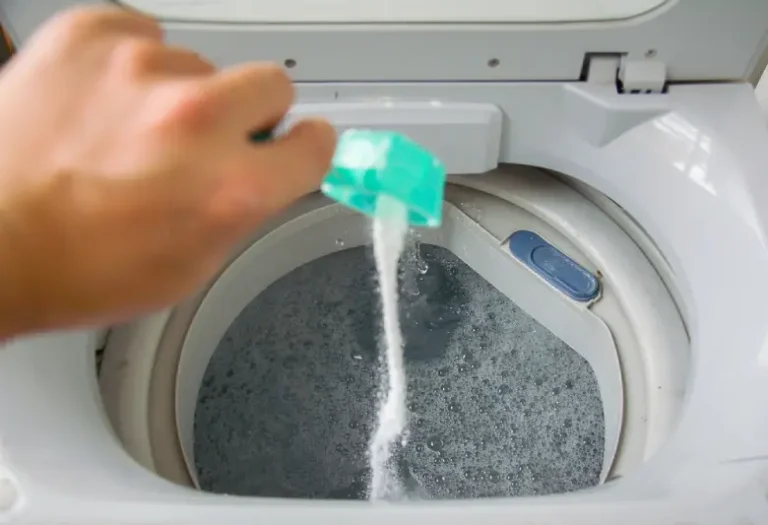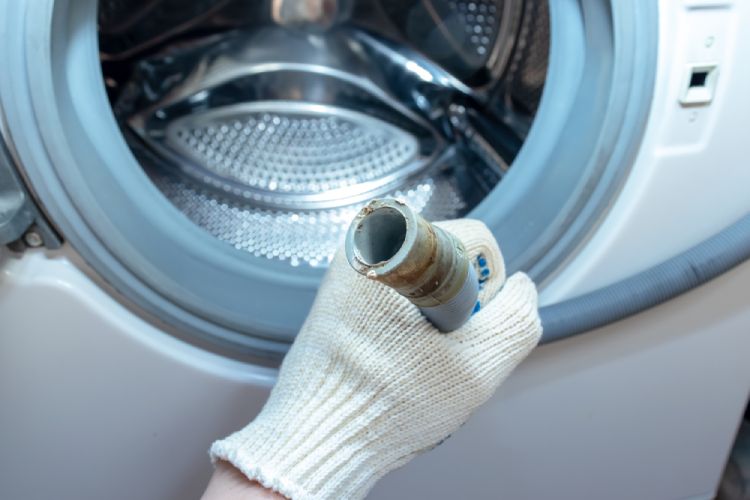Why is My Washing Machine Tripping the Electric? Fix It Fast!
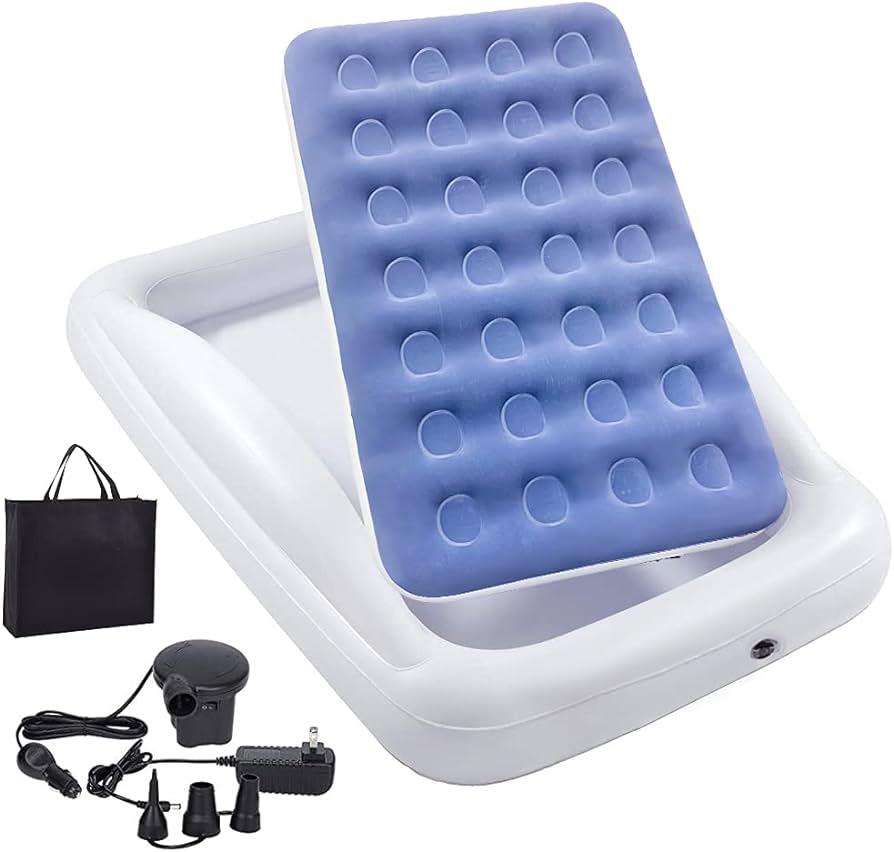
Your washing machine could be tripping the electricity due to an electrical fault or water leakage. Faulty wiring or a malfunctioning component often causes this safety issue.
Washing machines are complex appliances that enhance our daily lives, yet having your washing machine trip the electric circuit can be both inconvenient and concerning. This form of electrical disturbance commonly suggests an underlying issue that requires immediate attention to ensure safety and functionality.
Common culprits include moisture penetration, overloaded circuits, or a failing motor. Addressing these issues not only restores the use of your appliance but also prevents potential hazards. Understanding the reasons behind electrical trips allows homeowners to take prompt action, either by seeking professional repair services or by reviewing their appliance’s use to ensure it aligns with the home’s electrical system’s capacity. Quick identification and resolution of such issues can save time, protect other electrical devices in the home, and prevent the possibility of fire risks due to electrical malfunctions.

Credit: www.nytimes.com
Common Culprits Behind A Tripping Washing Machine
Laundry day can turn into a headache when the washing machine trips the breaker. Understanding the common causes helps to solve the problem quickly.
Faulty Wiring Or Connections
Electrical issues often lead to power trips. Look for signs of wear or damage in the machine’s wiring. Loose connections can also cause short circuits.
- Inspect wires for fraying or scorch marks.
- Check plug sockets for burn marks or buzzing sounds.
- Ensure connections are tight and secure.
Overloaded Power Circuits
Too many appliances on one circuit can overload it. This might trip the breaker.
- Check your circuit load.
- Do not run multiple high-energy devices at once.
- Consider a dedicated circuit for the washing machine.
Water Leaks And Electricity: A Dangerous Mix
Imagine stepping into a puddle only to realize it’s not just water—you’re standing in a potentially dangerous situation.
Your washing machine is tripping the electricity, and it’s something you can’t ignore.
Water leaks around electrical appliances spell trouble. Electricity and water form a risky duo, posing a threat to safety and property.
Understanding the risks and addressing leaks early keeps your home safe.
Identifying Leak Sources
Detecting where water comes from is crucial.
- Check hoses for signs of wear or loose connections.
- Inspect the washing machine’s door seal for damage or gaps.
- Look under the machine for puddles or damp spots.
Not all leaks are obvious.
Some hide behind the machine or under panels.
If signs point to a leak, immediate action prevents further risks.
Water And Electrical Component Interactions
Water near electrical parts can cause short circuits.
Short circuits often lead to power trips.
| Component | Risk |
|---|---|
| Motor | Electrical surges |
| Control Board | Malfunction or failure |
| Wiring | Corrosion or damage |
Safeguard electrical components by tackling leaks promptly.
Avoid using the washer until it’s repaired to prevent electric tripping.
Motor Issues Leading To Power Trips
Motor issues often lead to power trips in washing machines. The motor, the heart of the appliance, can suffer from various problems affecting performance. Understanding these issues helps to identify and fix them promptly. Here we’ll delve into why the motor can cause electrical disturbances.
Wear And Tear Of Motor Components
Regular usage takes a toll on the washing machine motor. Components begin to degrade over time. This natural wear and tear can eventually lead to electrical shorts or surges that trip the power. Look out for the following parts that commonly wear out:
- Carbon brushes: Responsible for electrical conductivity in the motor.
- Armature: The rotating core that interacts with the magnetic field.
- Bearings: These reduce friction as the motor spins.
Signs Of Motor Malfunction
Recognize motor failure signs early to prevent power trips. These signs suggest the motor might be failing:
| Sign | What It May Indicate |
|---|---|
| Burning smell | Overheating motor or worn-out insulation. |
| Unusual noises | Worn bearings or loose components. |
| Machine stops mid-cycle | Motor overload or electrical fault. |
If you observe these signs, immediate action is crucial. Contact a professional to inspect your washing machine’s motor and avert potential dangers.
Troubleshooting The Electric Circuitry
Is your washing machine suddenly tripping your home’s electricity? It’s a common issue but can cause much frustration. Before calling a professional, some simple troubleshooting steps might save you time and money. Let’s dive into the world of electric circuitry to find a solution.
Resetting The Circuit Breaker
Finding the breaker box is the first step. It’s usually in a garage or basement. Look for a switch that has moved to the “off” position or is sitting in the middle.
- Move the breaker to the “off” position.
- Next, shift it to the “on” position.
- Go back to your machine and try running it again.
If the breaker trips again, there’s likely a bigger issue. Continuing use might damage the machine or the electric system.
Inspecting The Outlet And Plugs
Plugs and outlets can be troublemakers. Ensure the plug fits tightly in the outlet. A loose plug can cause a short circuit.
- Turn off the washing machine.
- Remove the plug from the outlet.
- Look for signs of damage or burning.
Use a multimeter to test the outlet. It should show proper voltage. If the numbers are off, the outlet might need replacement.
| Checklist | Action | Remarks |
|---|---|---|
| Plug condition | Inspect for damages | If damaged, replace it |
| Outlet Voltage | Use multimeter | Should match the standard voltage |
If these steps don’t sort out the issue, the washing machine might have internal electrical problems. In such cases, a qualified technician’s help will be necessary.
Professional Repair Or Diy: Making The Right Choice
Is your washing machine causing a power trip in your home? You might wonder whether to call a professional or try to fix it yourself. This guide helps you decide what’s the best option, considering the technical skills required and the risks involved in a DIY fix.
Assessing Your Technical Skill Level
Evaluating your hands-on experience is crucial before tackling washing machine repairs. Here are a few questions to ask yourself:
- Have you repaired electrical appliances before?
- Do you understand electrical circuit diagrams?
- Can you identify washing machine components confidently?
A yes to these questions might mean a DIY approach could work for you. A no indicates that it’s safer to call a pro.
Risks Of Diy Electrical Fixes
Electrical repairs can be dangerous. DIY fixes without proper knowledge and tools pose serious risks:
| DIY Risk | Consequence |
|---|---|
| Electric shock | Potential injury or fatal accident |
| Incorrect repair | Further damage to the machine |
| Warranty void | Loss of manufacturer support |
For tasks beyond your skill level, professional repair is the safer and often more cost-effective choice.
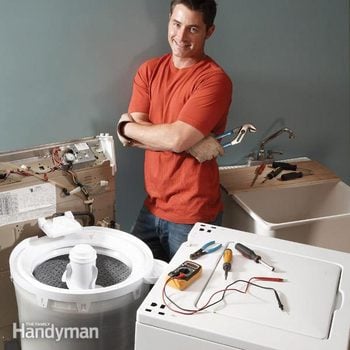
Credit: www.familyhandyman.com
Preventative Maintenance To Avoid Future Trips
Preventative maintenance is key to ensuring that a washing machine remains safe and efficient. Regular checks can help avoid unfortunate incidents where your appliance trips the electricity. Simple, routine care goes a long way in preventing disruptions and potential hazards. Here are insightful tips for maintaining your washing machine to keep it from becoming a household nuisance.
Routine Inspection Tips
Keeping a vigilant eye on your washing machine can prevent future electrical mishaps. Begin with these easy steps:
- Check the power cord regularly for any signs of wear or damage.
- Examine the water hoses and connections for leaks or kinks.
- Ensure the machine is plugged into a properly grounded outlet.
- Clean the lint filter after every use to prevent blockages.
- Run an empty hot water cycle monthly with a washing machine cleaner.
When To Call An Electrician Or Appliance Technician
If you notice any of the following, it’s time to bring in a professional:
- Frequent electrical tripping when the washing machine is in use.
- Rust on the casings or electrical panels.
- Sparks or burning smells coming from the machine.
- Repeated error messages on digital displays.
Contact an electrician if the issue seems related to your home’s wiring or electricity supply. Appliance technician assistance is best when the problem is with the machine itself.

Credit: www.nytimes.com
Frequently Asked Questions Of Why Is My Washing Machine Tripping The Electric
What To Do If Your Washing Machine Trips The Electric?
Unplug the washing machine immediately. Reset your circuit breaker. Check for appliance and outlet damage. Contact a professional electrician if issues persist. Avoid using until professionally assessed.
Why Does My Washing Machine Keep Tripping The Outlet?
Your washing machine may trip the outlet due to a water leak, electrical fault, or overloaded circuit. Regular maintenance can prevent these issues.
How Do I Stop My Appliance From Tripping The Power?
Check the appliance for faults and repair if necessary. Plug it into a different circuit to distribute power usage. Reduce the number of devices on a single circuit. Consider using a surge protector. Ensure your appliance does not exceed the circuit’s power capacity.
Why Does My Power Washer Keep Tripping The Power?
Your power washer may trip the power due to water leaks, electrical faults, or an overloaded circuit. Regular maintenance can prevent these issues.
Conclusion
Understanding your washing machine’s electrical issues is crucial for safety and efficiency. Regular maintenance and prompt attention to early warning signs can prevent future tripping problems. Secure your home and protect your appliance by addressing electrical faults immediately. Don’t let a tripping washing machine disrupt your routine—seek expert advice if needed!

